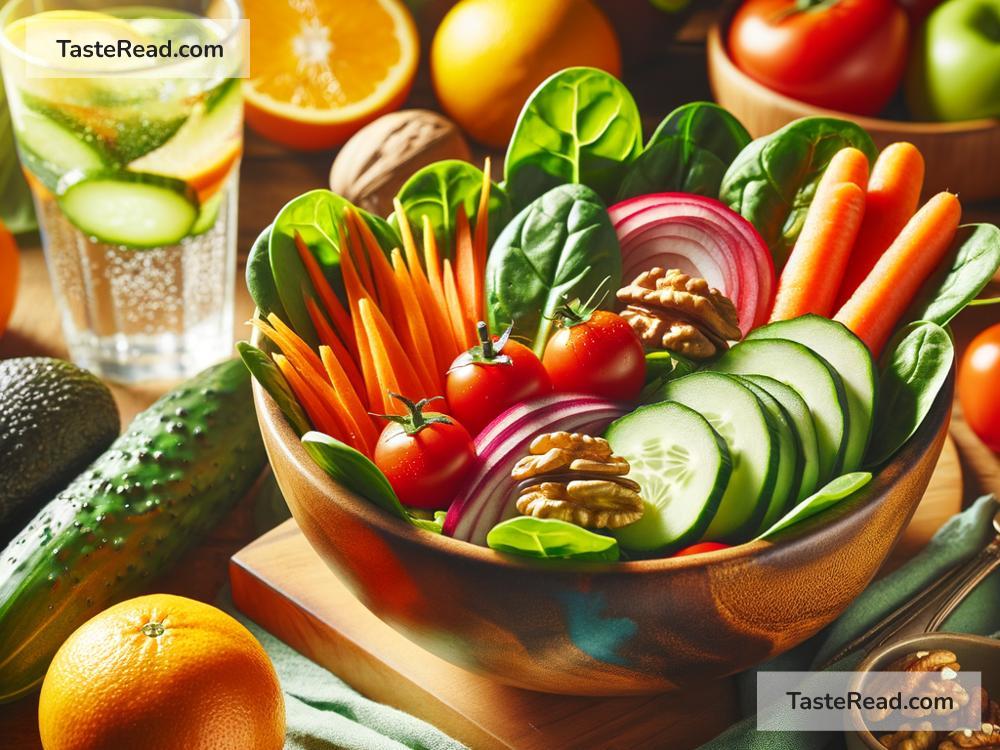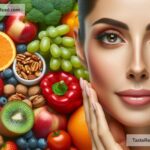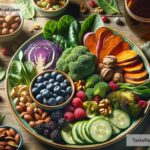The Benefits of a Balanced Diet for Skin Health: Supporting Dermatological Well-Being
When it comes to skin care, many people think of expensive creams and treatments. While these can help, one of the most important ways to care for your skin is through what you eat. A healthy, balanced diet doesn’t just make you feel better on the inside—it can also help your skin look better on the outside. Let’s explore how the foods we eat can improve skin health and support overall dermatological well-being.
Your Skin and Your Diet: What’s the Connection?
Your skin is the largest organ in your body, and like every other organ, it needs proper nutrients to function well. What you eat can have a big impact on how your skin looks and feels, as your diet provides the vitamins, minerals, and energy your skin requires to stay healthy.
A balanced diet includes a variety of nutrient-rich foods, such as fruits, vegetables, lean proteins, healthy fats, and whole grains. These foods provide your skin with the tools it needs to repair itself, fight damage, and stay hydrated.
On the other hand, an unhealthy diet filled with processed foods, sugary snacks, and unhealthy fats can lead to inflammation, acne, and even premature aging of the skin. So, what you eat matters—especially if you want glowing, healthy skin.
The Essential Nutrients Your Skin Craves
Certain nutrients play key roles in building, repairing, and maintaining healthy skin. Here are some of the most important ones:
-
Vitamin C
Vitamin C helps your body make collagen, the protein that keeps your skin firm and elastic. It also fights free radicals—damaging molecules that can cause wrinkles and dull skin. Foods rich in vitamin C include oranges, strawberries, kiwis, and red bell peppers. -
Vitamin E
Vitamin E acts as a powerful antioxidant that protects your skin from damage caused by sunlight and pollution. It also helps keep your skin smooth and soft. You can find vitamin E in nuts, seeds, spinach, and avocados. -
Vitamin A
Vitamin A supports skin cell repair and helps prevent dryness. It’s particularly important for reducing acne and healing small wounds. Sweet potatoes, carrots, and leafy greens are great sources of vitamin A. -
Omega-3 Fatty Acids
Omega-3s are healthy fats that reduce inflammation and keep your skin hydrated. They can help with conditions like dryness, redness, and acne. These fatty acids are found in foods like salmon, walnuts, chia seeds, and flaxseeds. -
Zinc
Zinc supports healthy skin by promoting healing and reducing inflammation. It’s especially helpful for people who suffer from acne. You can get zinc from beans, lentils, nuts, and seafood like oysters. -
Water
While water isn’t technically a nutrient, it’s crucial for skin health. Staying hydrated keeps your skin plump, soft, and glowing. Aim to drink plenty of water throughout the day, and eat water-rich foods like cucumbers, watermelon, and celery.
How a Balanced Diet Improves Your Skin
When you give your body the nutrients it needs, you’ll start to see positive changes in your skin. Here are a few benefits of maintaining a balanced diet:
-
Fewer Breakouts
Sugary and processed foods can trigger acne by increasing inflammation and hormone imbalances. By switching to a balanced diet, you can reduce acne and enjoy clearer skin. -
Youthful-Looking Skin
Vitamins like A, C, and E fight free radicals that can cause wrinkles and loss of elasticity. Eating nutrient-rich foods can help your skin look younger for longer. -
Even Skin Tone
A balanced diet helps your skin repair itself, reducing dark spots, redness, and uneven coloring. This can give your skin a smoother, more radiant appearance. -
Boosted Hydration
Eating water-rich foods and healthy fats helps your skin stay moisturized. This prevents dryness, flaking, and the dull look that comes with dehydrated skin. -
Wound Healing and Inflammation Reduction
Nutrients like zinc and omega-3s help your skin heal faster and reduce irritation. This is especially important for people with conditions like eczema or rosacea.
Tips for Eating Your Way to Healthy Skin
Here are some simple changes you can make to improve your skin health through diet:
- Eat the Rainbow: Include different-colored fruits and vegetables in your meals to ensure you’re getting a variety of nutrients.
- Swap Junk Foods for Healthier Options: Replace chips and sugary snacks with nuts, seeds, or fruit.
- Limit Alcohol and Sugary Drinks: Alcohol and sugar dehydrate your body and can make your skin look dull. Stick to water or herbal teas instead.
- Be Consistent: Skin health doesn’t improve overnight. Stick to healthy eating habits to enjoy long-term benefits.
A Final Thought: Let Food Be Your Skin Care
The next time you think about improving your skin, remember that what you eat is just as important as what you put on your skin. A balanced diet filled with vitamins, minerals, and healthy fats can help you achieve glowing, healthy skin. Simply adding more fruits, vegetables, lean proteins, and water to your meals can work wonders. Skin care isn’t just about products—it’s about lifestyle choices. By making better food choices, you’re not just helping your skin; you’re boosting your overall health, too.
So, start building those healthy habits today—your skin will thank you!


